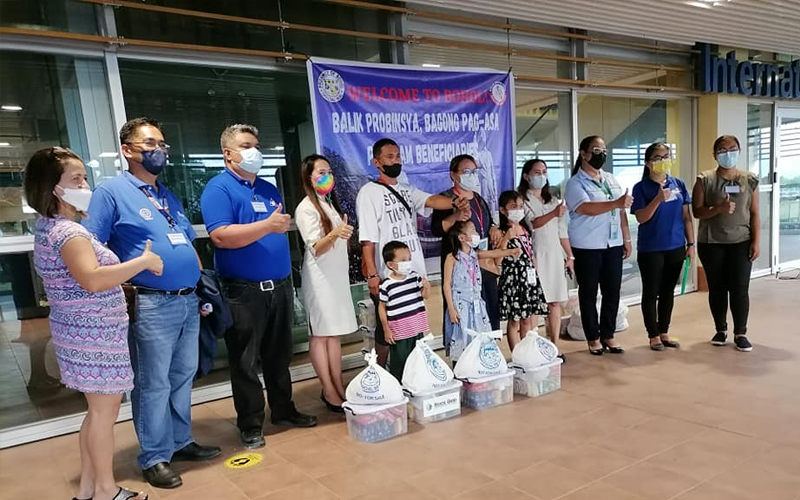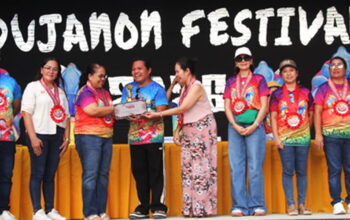
TWENTY-FIVE Boholano individuals joined the rising number of people disenchanted by the myths of the promise of the city and decided to come home for good to start anew.
After all, most of them do not own permanent homes or are not regularly employed, affected by the pandemic restrictions, are measly paid or are evicted from their often unsafe dwellings.
Left with barely enough to keep body and spirit together, the 25 members of the five families who realized they could not cope up with the life in the metropolis, applied for the government’s program to decongest urban poor communities in Metro Manila and its surrounding regions.
Beneficiaries of the Balik Probinsya-Bagong Pag-asa (BP2), the five families from Mabini, Alicia, Bilar, Calape and Dauis received one way plane tickets to Bohol and bade goodbye to their neighbors who hardly knew them.
Lured to the metropolis for a promise of a good life, easy money and better social services, these people once saw lack of economic opportunity and support services and in their home towns, enough to venture and gamble with a life in the city.
Day-in and day out, they soon realized the harsh city environment and the crazy rat-race that forces many to go to the extreme: to kill or be killed.
As the migration to the cities grew, authorities believe there is still hope for a better future to Filipinos through equity in resources throughout the country that will boost countryside development.
Through the BP2, the government intends to addressing Metro Manila’s congested urban areas by encouraging people, especially informal settlers to return to their home provinces and assist them in this transition with support and incentives on transportation, family, livelihood, housing, subsistence and education, among others, according to government sources.
Using the whole-of-nation approach which the administration is popularizing, the program thrives on the convergence of efforts of the multi-stakeholders pitching in to help the individuals or families restart a new life.
The BP2 therefore eyes an all-inclusive intervention in the reintegration of individuals and families through livelihood support, community grants, join and participate in community activities, earn skills trainings to enhance family and community readiness for disasters and preparedness in emergencies.
BP2 has assistance packages like transportation allowances and livelihood settlement grants from the Department of Social Welfare and Development, Trade and Industry, Labor and Employment, Technical Education and Skills Development Authority and potential educational assistance.
Aside from transportation allowance, BP2 has prepared a transitory family support package of between P10K to P50K to cover for food and non-food items during reintegration transition and livelihood settlement grants amounting to P50K as start-up capital via the DSWD sustainable livelihood program, DTI Go Negosyo livelihood kits and even possible housing assistance from the National Housing Authority.
In fact, to sweeten the pot for the return to the towns program, the government is also assisting Local Government Units in projects needed to develop or rehabilitate areas where the returning families resettle by community grants the municipality up to P7M for basic services, P350,000 for social preparation activities per town and P200,000 for capacity building activities.
From 2021 alone, according to the DSWD, some 337 families in central Visayas have been provided transitory family support package.
About 15 families have been sent out of Manila, 3 families have opted to get livelihood settlement grants and 25 local government units have entered into an agreement with BP2 for the qualified BP2 beneficiaries. (rahc/PIA_7/Bohol)


